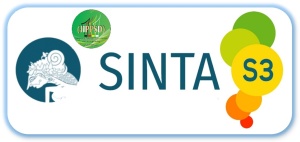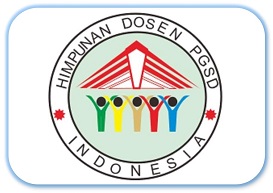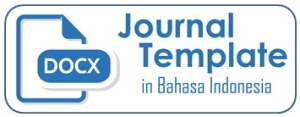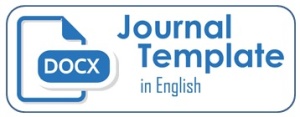Optimalisasi Hasil Belajar Siswa melalui Model Cooperative Learning Tipe Course Review Horay di Kelas V Sekolah Dasar
 ), Reinita Reinita(2),
), Reinita Reinita(2), (1) Universitas Negeri Padang, Kota Padang
(2) Universitas Negeri Padang, Kota Padang
 Corresponding Author
Corresponding Author
DOI : https://doi.org/10.24036/jippsd.v8i2.130373
Full Text:
 Language : ind
Language : ind
Abstract
Keywords
References
Abubakar, S. A., Tafida, A. M., & Umar, S. S. (2024). Challenges and Strategies for Recruiting Representative Samples in Research. African Journal of Social and Behavioural Sciences (AJSBS) Volume 14 , Number 7 ( 2024 ) ISSN : 2141-209X. 14(7), 4103–4118.
Aditya Faturrohman Pratama, Idad Suhada, & Asrianty Mas’ud. (2022). Korelasi Kesadaran Metakognitif Dengan Hasil Belajar Kognitif Peserta Didik Pada Materi Sistem Regulasi. Seminar Nasional Pendidikan Biologi , 2–15.
Amin, S. P., & Sumendap, L. Y. S. (2022). 164 model pembelajaran kontemporer (Vol. 1). Pusat Penerbitan LPPM.
Bakri, A. A., Yusni, Y., & Botutihe, N. (2023). Analisis Efektivitas Penggunaan Teknologi Big Data dalam Proses Audit: Studi Kasus pada Kantor Akuntan Publik di Indonesia. Jurnal Akuntansi Dan Keuangan West Science, 2(03), 179–186. https://doi.org/10.58812/jakws.v2i03.641
Borodovsky, J. T. (2022). Generalizability and Representativeness: Considerations for Internet-Based Research on Substance Use Behaviors. Experimental and Clinical Psychopharmacology, 30(4), 466–477. https://doi.org/10.1037/pha0000581
Faradita, M. N. (2017). Pengaruh Model Pembelajaran Kooperatif Tipe Course Review Horay Terhadap Motivasi Belajar Siswa Mata Pelajaran IPA di Sekolah Dasar. ELSE (Elementary School Education Journal): Jurnal Pendidikan Dan Pembelajaran Sekolah Dasar, 1(2), 185–
https://doi.org/https://doi.org/10.30651/else.v1i2b.1404
Hanif, M. (2020). The development and effectiveness of motion graphic animation videos to improve primary school students’ sciences learning outcomes. International Journal of Instruction, 13(4), 247–266. https://doi.org/10.29333/iji.2020.13416a
Kusanagi, K. N. (2022). Lesson Study as Pedagogic Transfer. Springer.
Kyriakides, L., Christoforou, C., & Charalambous, C. Y. (2013). What matters for student learning outcomes: A meta-analysis ofstudies exploring factors of effective teaching. Teaching and Teacher Education, 36, 143–152. https://doi.org/10.1016/j.tate.2013.07.010
Lim, W. M. (2024). What Is Qualitative Research? An Overview and Guidelines. Australasian Marketing Journal. https://doi.org/10.1177/14413582241264619
Petriza, N., & Eliyasni, R. (2020). Peningkatan Hasil Belajar Pada Pembelajaran Tematik Terpadu Menggunakan Model Kooperatif Tipe Group Investigation di Sekolah Dasar. Jurnal Inovasi Pendidikan dan Pembelajaran Sekolah Dasar, 4(2), 1. https://doi.org/10.24036/jippsd.v4i2.109919
Putri, W. K., Sofwan, M., & Noviyanti, S. (2022). Peran Guru Dalam Meningkatkan Motivasi Belajar Siswa Menggunakan Model Problem Based Learning Dengan Integrasi Teknologi Pada Siswa Kelas IV SD N 124/VIII Sidorejo. Jurnal Pendidikan Dan Konseling, 4(2), 46–52.
Qureshi, M. A., Khaskheli, A., Qureshi, J. A., Raza, S. A., & Yousufi, S. Q. (2023). Factors affecting students’ learning performance through collaborative learning and engagement. Interactive Learning Environments, 31(4), 2371–2391. https://doi.org/10.1080/10494820.2021.1884886
Rogelio N. Tandayu, LPT, M. (2024). Developing Effective Learning Modules In Automotive Technology: A Validation Study. Ignatian International Journal for Multidisciplinary Research, 2(11), 405–425. https://doi.org/https://doi.org/10.5281/zenodo.14202048
Sato, M., & Viveros, P. (2016). 3. Interaction or collaboration? Group dynamics in the foreign language classroom. October, 91–112. https://doi.org/10.1075/lllt.45.04sat
Yang, X., Zhou, X., & Hu, J. (2022). Students’ preferences for seating arrangements and their engagement in cooperative learning activities in college English blended learning classrooms in higher education. Higher Education Research and Development, 41(4), 1356–1371. https://doi.org/10.1080/07294360.2021.1901667
Zitha, I., Mokganya, G., & Sinthumule, O. (2023). Innovative Strategies for Fostering Student Engagement and Collaborative Learning among Extended Curriculum Programme Students. Education Sciences, 13(12). https://doi.org/10.3390/educsci13121196
 Article Metrics
Article Metrics
 Abstract Views : 56 times
Abstract Views : 56 times
 PDF Downloaded : 9 times
PDF Downloaded : 9 times
Refbacks
- There are currently no refbacks.

This work is licensed under a Creative Commons Attribution 4.0 International License.







